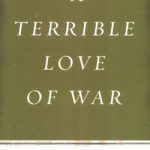Editor’s Page
By Alejandro Grattan-Dominguez
THE JFK ASSASSINATION—Revisited
Many years ago, the History Channel produced a six-part series on the above-mentioned matter, but was blocked by the Federal Communications Commission from broadcasting the series, threatening to take away the Channel’s federal license if it violated this mandate. Only fairly recently was the ban finally lifted, and one’s first reaction is to wonder why the FCC ever lifted the ban: the series is political dynamite, if simultaneously highly controversial!
Containing many never-before seen interviews with a staggering variety of people, both prominent and ordinary, the series slowly but surely attempts to tear to shreds the findings of the Warren Commission’s Report which once had been the “final word” on the 1963 assassination of one of America’s most popular presidents.
That “final word” averred that JFK was killed by a single gunman, Lee Harvey Oswald, the motive for the murder unclear. There the matter stood until 1991 when the Oliver Stone movie JFK was released, causing a political uproar. Much of Stone’s movie was bitterly rebuked, and though it did draw some baseless conclusions, history has been kind to the film in that many of the main points it made have been largely re-stated by the History Channel’s ultra-comprehensive six-hour series.
For those old enough to have lived through the national trauma of the assassination of JFK, many of the initial “official explanations” rang hollow, e.g. Oswald did not seem to have anywhere near sufficient motive for committing such a horrendous crime; the trajectory of the fatal shot did not conform with the theory that the shot came from far above and behind the motorcade, and in the subsequent crime which involved the killing of Oswald himself, the motive given by the assassin, Jack Ruby, that he had killed Oswald to spare JFK’s widow the ordeal of having to testify at any subsequent murder trial involving Oswald was an assertion that was little less than laughable. Far from laughable, however, are the following conclusions the History Channel’s investigation reached:
- Lee Harvey Oswald was indeed involved, but he was only the “patsy,” as he himself said repeatedly before he was killed. The main shooters were two expert marksmen-for-hire from the Marseille area of France, who were ahead of the Kennedy motorcade and hidden in a sunken drainage area. This conforms to the well-established projected path of the shot that killed the president, i.e., coming from ahead of the motorcade and from a lower angle.
- The plot was financed by a few (named) billionaire Texas oilmen who had been deeply aggrieved by JFK’s announced intention to cut the oil depletion allowance in half, a move that would have cost them tens of millions of dollars. This meant a conspiracy, and money must have been Oswald’s only interest in taking part in the plot.
- Deeply involved in the planning of the plot was the top leadership of the Central Intelligence Agency (CIA), which had been marked for dismissal because of what JFK thought was its dismal planning and execution of the scheme to oust Fidel Castro in the monumental failure later termed “The Bay of Pigs.”
- Also implicated: the longtime Director of the FBI, who had learned that Pres. Kennedy planned to “retire” him soon after the upcoming 1964 election, but not before due to possibly adverse political reactions.
- Also involved was the head of the Mafia in New Orleans, who had a long list of grievances against both Jack and Robert Kennedy.
- Included, as well, in the plot were a few members of the top ranks of the American military who were aware that JFK planned to terminate the Vietnam War shortly after he won the upcoming presidential election in 1964. The president had concluded that the war was unwinnable from a political standpoint, but did not want to end it before the election, lest his upcoming Republican opponent call him “soft on Communism.”
- Then add the Industrial-Military Complex, which was making billions of dollars off the unpopular war. President Eisenhower in his Farewell Address in 1959 had warned his country about this cabal, fearing that someday it might be too powerful for even an American president and/or Congress to control.
- Most specifically named was the man who assumed the presidency after the murder of JFK, who continued the war in Vietnam until the domestic resistance to it became a political tidal wave that even he could not turn back. His personal motive for joining the anti-Kennedy cabal had been an urgent one: two separate criminal investigations were coming to a head, and only the presidency could shield him from prosecution and perhaps from serving time in prison. (Does this sound familiar?)
- Finally, it was reliably reported that on the Thursday night prior to the Fateful Friday, many of those referred to above were in Dallas, attending a meeting at the palatial home of one of the aforementioned oil magnates.
People say that “elections matter” and they do— but so do presidents. Surely most of the entire world came to miss the brilliance of America’s 37th president. Of far more serious consequence, however, is the many hundreds of thousands of people who died in the Vietnam War who might still be alive today if President Kennedy had not been murdered in Dallas in late 1963. The war would go on for another 12 years.
Footnote: Though the History Channel, in the face of severe political pressure, had to recant some of its assertions, of the wide net of conspirators mentioned by name in the TV series, not a single defamation lawsuit related to this matter has ever been filed against the History Channel by any party or individual who might have had some stake in the matter. We urge our readers to draw their own conclusions.
{article Alejandro Grattan-Dominguez}{text}{/article}
- April 2024 – Issue - March 31, 2024
- April 2024 – Articles - March 31, 2024
- April 2024 - March 31, 2024









